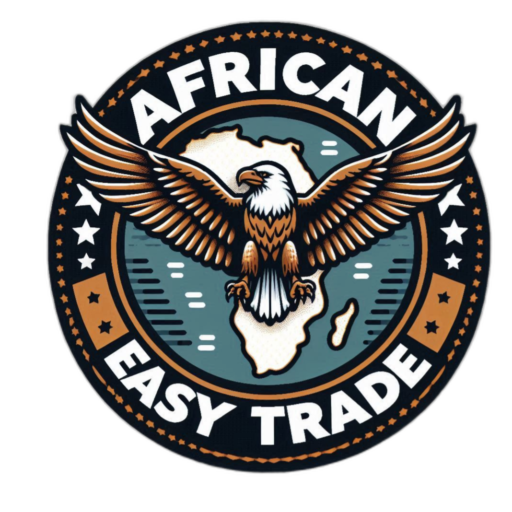Why Choose a Marketplace

Introduction
In today’s rapidly evolving digital economy, the choice between maintaining an individual e-commerce website and joining an online marketplace can significantly impact a business’s growth trajectory. For African entrepreneurs, ranging from small-scale artisans to large-scale manufacturers, leveraging a marketplace like African Easy Trade (AET) offers unique advantages that extend far beyond simply not having a standalone website. This article explores the benefits of an e-commerce marketplace, clarifies common misconceptions, and highlights why entrepreneurs across Nigeria and the wider African continent should consider partnering with AET to showcase their products to the world.
What Is an E-commerce Marketplace?
An e-commerce marketplace is an online platform where multiple vendors list, sell, and ship their products under one unified digital “roof.” Unlike a standalone website, which is managed, maintained, and marketed by a single business, a marketplace centralizes:
- Traffic and Marketing Efforts: Aggregating multiple sellers attracts larger visitor volumes, resulting in shared marketing benefits.
- Trust and Credibility: Buyers often feel more confident purchasing from a marketplace that enforces consistent policies, quality checks, and secure payment processes.
- Logistics and Support: Many marketplaces offer integrated payment gateways, shipping solutions, and customer service support, reducing the technical burden on individual vendors.
Marketplace vs. Individual Website

Why a Marketplace Is Not Just for Those Without a Website
Many businesses assume that marketplaces are only for vendors who lack the resources to build their own website. Marketplaces serve as a complement to standalone websites. Even existing e-commerce sites can benefit by listing on a marketplace to:
- Expand Reach
- A single website may rank highly for niche keywords, but reaching entirely new customer segments can be challenging. Marketplaces like African Easy Trade have established audiences actively seeking diverse products, from local crafts to industrial-grade machinery.
- Leverage Collective Marketing
- Instead of investing heavily in pay-per-click (PPC) campaigns, email marketing, and SEO exclusively for one site, vendors tap into the marketplace’s centralized
Marketing initiatives—social media promotions, influencer partnerships, and email newsletters—amplifying exposure at a fraction of the cost.
- Enhance Credibility
- Shoppers often research multiple products across sites before purchasing. Being part of a reputable marketplace signals that a vendor meets certain quality, shipping, and customer service standards. This credibility can drive higher conversion rates than a standalone website, especially for new or lesser-known brands.
- Optimize Operational Efficiency
- A marketplace’s integrated payment processing, logistics partnerships, and customer support infrastructure allow vendors to offload time-consuming tasks. This frees up resources to focus on product development, inventory management, and growth strategies.
Benefits of Pulling Resources Together in a Marketplace
- Economies of Scale
When multiple vendors congregate on a single platform:
- Lower Per-Unit Costs: Bulk shipping arrangements and negotiated logistics rates apply to all sellers, reducing per-unit shipping costs.
- Shared Technology Investments: The marketplace invests in secure servers, mobile-responsive design, and data analytics, which all vendors benefit from without each bearing the full development cost.
- Enhanced Buyer Experience
A unified marketplace offers:
- One-Stop Shopping: Buyers can compare a variety of complementary products, such as raw materials, finished goods, or related services, without navigating away from the platform.
- Standardized Policies: Consistent return, refund, and dispute-resolution policies create a smoother experience, fostering repeat purchases and brand loyalty for all vendors.
- Integrated Reviews and Ratings: As buyers leave feedback, it builds social proof not just for a single vendor but enhances the overall marketplace reputation, attracting more traffic.
- Increased Network Effects
- Vendor Synergies: Beginners and small-scale entrepreneurs can learn best practices from more established sellers. Training webinars, community forums, and collaborative marketing campaigns reinforce a knowledge-sharing ecosystem.
- Cross-Promotion Opportunities: Vendors can participate in joint promotional events, such as holiday sales or category-specific campaigns, amplifying visibility for all stakeholders.
Hosting All Tiers of Business
One of the most compelling advantages of a marketplace is its ability to accommodate businesses at every stage:
- Beginners and Micro-Entrepreneurs
- Low entry barriers: Sellers can list a handful of products without upfront website development costs.
- Learning resources: Onboarding materials, vendor support teams, and peer communities help novices navigate e-commerce fundamentals.
- Small and Medium Enterprises (SMEs)
- Scalability: As demand grows, SMEs can expand their storefronts, integrate inventory management tools, and leverage analytics dashboards provided by the marketplace.
- Diverse customer base: Exposure to domestic and international buyers without needing to establish separate distribution channels.
- Wholesalers and Distributors
- Bulk-order facilitation: Specialized order forms and negotiated pricing tiers allow B2B transactions to coexist alongside B2C sales.
- Logistics optimization: Partnerships with freight forwarders and warehousing solutions help streamline large-volume shipments.
- Manufacturers
- Global Showcase: Manufacturers can display product catalogs, technical specifications, and compliance certifications, attracting retailers and distributors from across Africa and beyond.
- Custom Orders & OEM: Dedicated sections for custom orders, scaling production, and OEM (Original Equipment Manufacturer) partnerships connect factories with large-scale buyers.
Why African Entrepreneurs Should Partner with Marketplaces Like AET 1. Replicating the Alibaba Model in Africa
In China, Alibaba revolutionized how small manufacturers and exporters accessed global markets. By offering a trusted, centralized marketplace, Alibaba helped:
- Bridge the gaps between rural producers and international buyers.
- Provide SMEs with affordable marketing channels previously available only to large corporations.
- Fostered rapid industrial growth by democratizing access to export markets. Similarly, African Easy Trade aims to:
- Showcase the ingenuity and craftsmanship of Nigerian and broader African businesses.
- Supply a platform where local producers, from Nollywood-themed apparel to palm oil producers, gain global visibility.
- Streamline export processes by partnering with shipping companies, payment gateways, and regulatory bodies across major African markets.
- Building a Pan-African Ecosystem
- Localized Support, Global Reach: By focusing on the unique challenges African entrepreneurs face—such as cross-border payments, logistics bottlenecks, and trust deficits—AET tailors solutions that resonate with local realities.
- Capacity-Building Initiatives: Through workshops, webinars, and mentorship programs, AET equips vendors with digital literacy skills, product photography best practices, and export-compliance guidance.
- Community and Collaboration: African Easy Trade fosters a sense of pan-African solidarity, encouraging partnerships between manufacturers in one country with wholesalers in another, thereby strengthening intracontinental trade.
- Cost-Efficient Growth
- Minimal Upfront Investment: Rather than investing tens of thousands of naira in website design, hosting, and marketing, vendors can allocate budgets toward product development and quality improvement.
- Transparent Fee Structures: AET’s commission model ensures vendors only pay when sales occur, mitigating financial risks for emerging entrepreneurs.
- Aggregated Data Insights: Marketplace analytics highlight trending products, seasonal demand shifts, and competitor pricing, enabling vendors to make data-driven decisions.
African Easy Trade’s Vision: Showcasing African Business Acumen
- Highlighting Nigerian Excellence: Nigeria’s SMEs are the backbone of its economy, driving innovation in agriculture, fashion, technology, and manufacturing. AET serves as a digital showcase, curating success stories, product spotlights, and vendor testimonials that amplify Nigeria’s entrepreneurial spirit.
- Repository for Every Manufacturer: Our long-term goal is to become the definitive platform where buyers, both domestic and international, turn to source African-made products. Whether it’s locally woven textiles, indigenous handicrafts, or cutting-edge tech solutions, AET will host them all.
- Sustainability and Ethical Trade: By promoting fair-trade practices and eco-friendly manufacturing, AET helps position African goods as not only affordable but also socially responsible, appealing to conscious consumers worldwide.
Structuring Your Partnership with AET
- Onboarding and Store Setup
- Register with basic business information, upload product catalogs, and set pricing tiers.
- Utilize AET’s vendor dashboard to manage inventory, process orders, and track performance metrics.
- Marketing and Promotion
- Participate in themed campaigns, such as “Made in Nigeria Week” or “African Innovations Spotlight” to boost visibility.
- Leverage integrated social media tools to share product links, customer reviews, and promotional banners.
- Logistics and Fulfillment
- Opt into AET’s preferred shipping partners for discounted rates on domestic and international shipments.
- Utilize built-in order-tracking features to keep customers informed, reducing disputes and enhancing trust.
- Continuous Learning
- Attend monthly webinars on topics ranging from SEO best practices to cross-border compliance.
- Engage with the vendor community through discussion forums and peer-to-peer mentoring sessions.
Conclusion
Joining a marketplace like African Easy Trade is not merely a fallback for those without a standalone website—it is a strategic decision that empowers businesses of all sizes to pool resources, expand reach, and enhance credibility. By hosting beginners, wholesalers, distributors, and manufacturers under one umbrella, AET is democratizing access to global markets, fostering cross-border collaborations, and showcasing African entrepreneurial excellence to the world.
Just as Alibaba propelled Chinese SMEs onto the global stage, African Easy Trade is committed to elevating Nigerian and African businesses. By harnessing collective traffic, shared technology investments, and community-driven support systems, entrepreneurs can reduce operational costs, access invaluable data insights, and focus on what they do best: creating high-quality products. Ultimately, AET aims to become the foremost repository and trusted partner for every
African manufacturer, distributor, and trader. Partner with African Easy Trade today and take your business from a local storefront to a global marketplace.



























